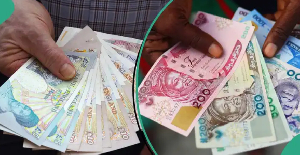Kogi State is one of the 36 states in Nigeria, located in the country's central region.
It is known for its rich cultural heritage, with a population comprising various ethnic groups such as the Igala, Ebira, and Okun.
Kogi State has natural resources crucial to the nation's economy, including fertile agricultural land.
With a mix of urban and rural landscapes, Kogi State offers a unique blend of traditions, modernity, and natural beauty.
It has a rich political history and plays a significant role in Nigeria's political landscape.
Here are some critical political facts about Kogi State:
1. Creation and Geography
Kogi State was created on August 27, 1991, during the administration of General Ibrahim Babangida. It was formed by carving out parts of Kwara and Benue States.
The state is strategically located in the central region of Nigeria, making it a crossroads for transportation and commerce.
The capital city of Kogi State is Lokoja, which also happens to be Nigeria's first capital during British colonial rule. Lokoja is an important political and administrative centre in the state.
2. Political Parties:
Like most Nigerian states, Kogi State is home to various political parties.
The two major political parties in the state are the All Progressives Congress (APC) and the Peoples Democratic Party (PDP).
The state has witnessed political contests and power shifts between these dominant parties.
3. Elections
Kogi State has seen competitive governorship elections over the years. Fierce political rivalries and close contests between candidates of different parties have often characterized the state's political landscape. Kogi State is divided into three senatorial districts: Kogi West, Kogi Central, and Kogi East. Each district elects a senator to represent them in the Nigerian Senate. These senatorial districts play a crucial role in the state's political dynamics.
4. Ethnic Diversity
Kogi State is known for its cultural and ethnic diversity. The state is home to various ethnic groups, including the Igala, Ebira, Okun, Yoruba, and Bassa. This diversity influences the political dynamics and alliances within the state.
5. Political Power Shifts
Kogi State has witnessed political power shifts between the two major parties, the APC and the PDP. These shifts have often led to changes in leadership and government policies, affecting the state's development and governance.
Politics of Friday, 10 November 2023
Source: www.legit.ng













